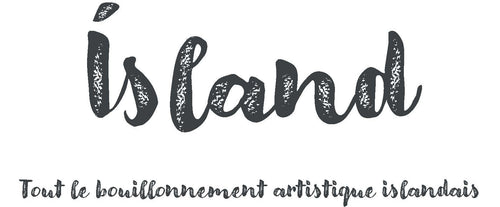June 19 (not March 8) is Iceland's national women's rights day, commemorating the historic date of June 19, 1915.
As early as 1882, widowed and self-employed Icelandic women were granted the right to vote in municipal elections.

In 1907, this right was extended to all women; then, on June 19, 1915, and despite the opposition of the King of Denmark, to parliamentary elections for women over 40, who also became eligible. In 1920, age and income restrictions were lifted, giving all Icelandic women equal rights in local and national elections.
For the record, New Zealand women have had the right to vote since 1893, Turkish women since 1935, French women since 1945 ...

The Icelandic suffragette movement was led by the Icelandic Women's Association, founded in 1894, and the Women's Rights Association, established in 1907 by the founder of Kvennablaðið ("The Women's Newspaper"), Bríet Bjarnhéðinsdóttir. She and three other suffragettes were elected to Reykjavík City Council in 1908. She went on to become the first woman to run for parliament in 1916, but was not elected. Ingibjörg H. Bjarnason, headmistress of Kvennaskólinn ("The Women's School"), became the first woman to hold a seat in Alþingi (parliament) in 1922. A statue in her honor now stands in front of the building.
Always a pioneer, in 1980, Iceland became the first country in the world to directly elect a female president. Vigdís Finnbogadóttir, a teacher and theater director, and a divorced single mother, held the position for 16 years.
Logically, the country is also at the forefront of gender equality (first in the world ahead of Finland and Norway according to the 2017 World Economic Forum (WEF) report, where France is 11th out of 144). The pay gap was 17.5% in 2015, even though equal pay has been theoretically imposed since a 1961 law. But the pay gap has risen to 21% in recent years, according to some studies, and sexual and gender-based violence is still common.
Equality is therefore in sight but remains a goal, and Icelandic women are not the type to be discouraged. In 1975, 90% of them stopped all activity, at work and at home, in order to defend their rights. On October 24, 2016, many left work at 2:38 p.m., considering that beyond this hour, they were working for nothing, compared to men's wages. On October 24, 2023, women returned to the streets and the mobilization was exceptional: 100,000 people, or a quarter of the population, giving rise to impressive images.
The platform of demands presented on this occasion goes beyond women's rights alone and deserves to be reproduced here.
- We demand that the undervaluation of so-called "women's" work be corrected!
- Employers must stop devaluing women's wages and rights!
- We demand concrete measures to rectify the conditions of the poorest women and men, because no one should have to live in poverty!
- We demand the elimination of pay inequality and discrimination!
- That women and men can survive on their salary and have the opportunity to flourish in the world.
- Let disabled women and men have the opportunity to work to improve their conditions!
- Let the education and skills of women of foreign origin be valued!
- That women and men are no longer financially punished for the unpaid care they provide throughout their lives and for which they also pay the price when they reach retirement age.
- That social efforts be made to eliminate prejudice against people with disabilities, queer people, people of foreign origin, and other marginalized groups.
- We demand that men take responsibility just as much as women and genderqueers!
- Let them take responsibility for unpaid duties and caring for family members!
- Let them take responsibility for the third unpaid shift!
- We demand that women and genderqueers not be placed under financial dependence on men who abuse them!
- Let women and genderqueers get support to develop their financial independence after surviving gender-based financial violence!
- We demand justice and compensation for victims of sexual and gender-based violence!
- Let the perpetrators of violence be held accountable for their actions and let sexual freedom be respected!
- May women and men enjoy safety and freedom from violence and harassment at work, at home and in public spaces!
- Let gender-based violence and sexual violence be eliminated!
- We demand that politics make our demands a priority!
- Immediately!
- We demand action and change!
- NOW!

Sources:
- Iceland review and Lögberg-Heimskringla for the historical part.
- Iceland Monitor of the October 25, 2023 And Wikipedia
- The World
- International Mail.
Photos
- Gathering at Austurvöllur Square on July 7, 1915: Magnús Ólafsson, photographic collection of the National Museum in Reykjavik
- Statue of Ingibjörg H. Bjarnason: Fred Cherrygarden.
- Event 2023: Eggert Jóhannesson.

